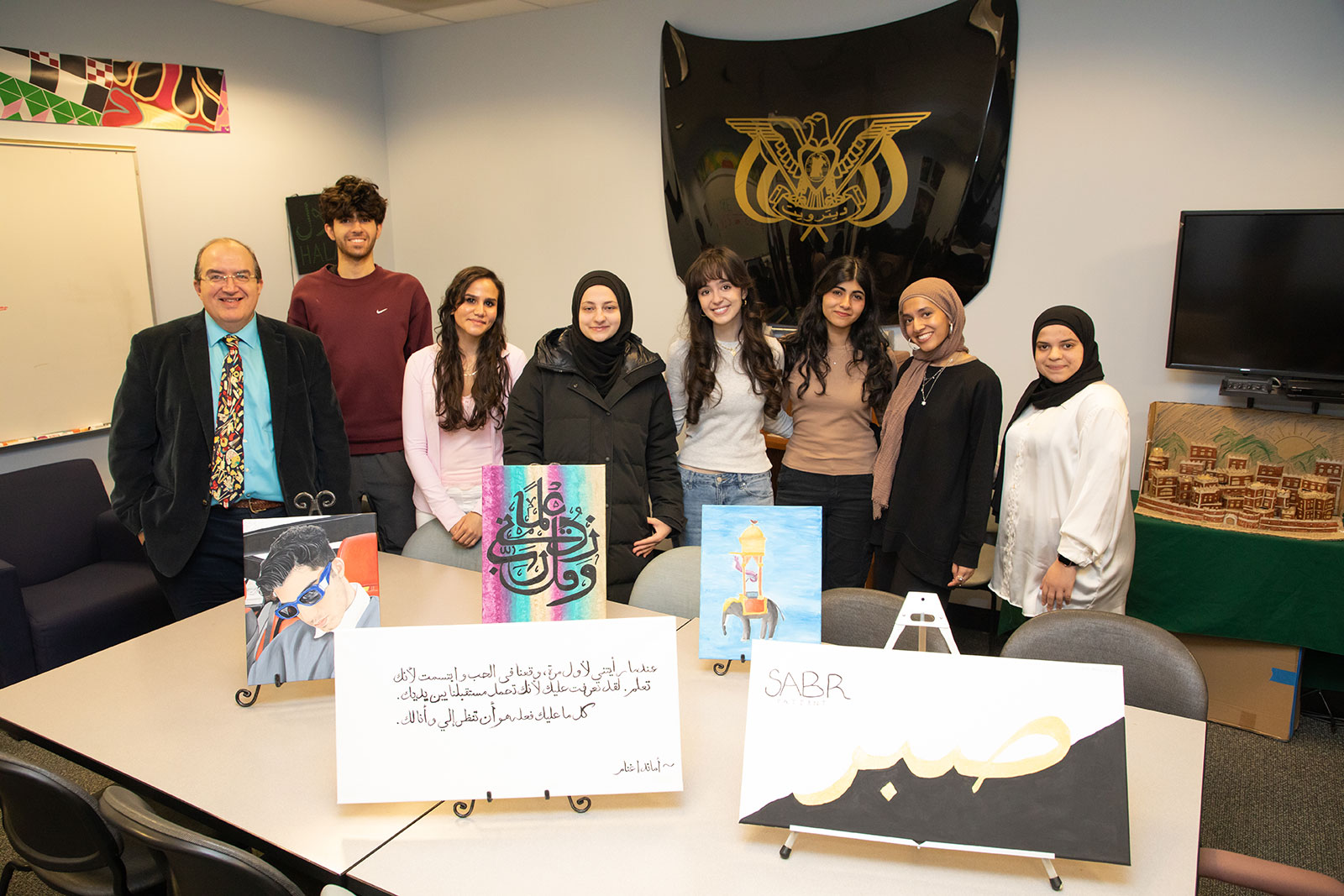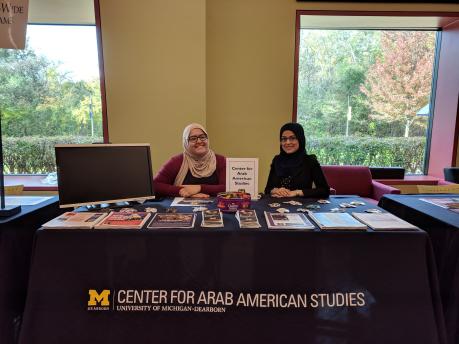Explore the Arabic Language and Culture
 Immerse yourself in a rich and comprehensive exploration of Arabic language and culture in our bachelor’s degree program in Arabic studies. With Dearborn becoming the first Arab-majority city in the United States in 2023, there’s no better place than the University of Michigan-Dearborn to study the Arabic influence on world cultures and politics.
Immerse yourself in a rich and comprehensive exploration of Arabic language and culture in our bachelor’s degree program in Arabic studies. With Dearborn becoming the first Arab-majority city in the United States in 2023, there’s no better place than the University of Michigan-Dearborn to study the Arabic influence on world cultures and politics.
In our program you’ll develop advanced skills in reading, writing, listening, and speaking in standard Arabic and various Arabic dialects. You’ll dive deep into centuries of Arabic culture, with particular emphasis on Arabic literature. And throughout your courses, there will be a strong focus on professional development.
Where an Arabic Studies Degree Will Take You
You’ll graduate with robust Arabic language skills and a deep understanding of Arabic culture that position you to excel in numerous fields. Whether you choose a career path in immigration, health care, the law, business, media, or another field, your skills will be highly sought after in today’s culturally rich global landscape.

